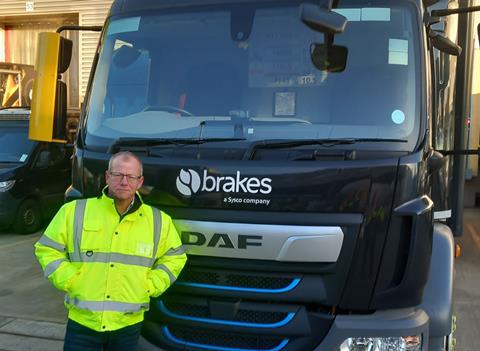
As the UK’s political parties hone their manifestos ahead of this year’s general election, this is a vital time to ensure that all those hoping to form the next government have a deep understanding of the impacts of their policy choices on the nation’s logistics provision.
Logistics operators are in a unique position to help spur the UK economy and boost progress towards net zero all while meeting our growing nation’s changing needs. But this potential can only be unlocked if we can operate within a policy environment that supports our ambitions and recognises the significant challenges we face.
We have launched the ‘Cold chain manifesto’ to ensure that the needs of the UK’s temperature-controlled logistics operators are recognised, and the challenges and opportunities associated with the transition from diesel-powered to emission-free transport refrigeration is a key priority.
Government and the cold chain already share the vision for our industry to operate with entirely emission-free transport refrigeration in the future. The benefits to the nation are clear and important, from supporting air quality improvement and reducing reliance on non-renewable resources, to the potential for cost efficiency, greater use of data and automation, and increased resilience to shocks in fuel supply and price.
Realising that vision, however, is incredibly complex and so far the crucial facilitation and support needed through government policy hasn’t been right. Almost two years on from the end of the red diesel entitlement, there’s been barely any support or facilitation at all.
One of the greatest barriers to operators investing in emission-free transport refrigeration equipment is substantial uncertainty on too many fronts. Technologies are still in trial or early-adoption phases, requirements such as insurance are developing areas, and there is no clarity about government’s investment plans for different renewable fuel sources and required infrastructure. Fleet operators must decide which technology to back in the face of substantial risk that its supporting infrastructure may not be backed by eventual government investment.
Affordability remains another major obstacle, particularly at a time when operators’ costs have shot up across the board. The high upfront cost and additional financial burden of supporting infrastructure such as chargers and grid connections can mean purchasing low emission refrigeration technologies is simply unaffordable.
Cold chain operators, along with manufacturers and other partners are working hard to move forwards by developing solutions to problems, making difficult investment decisions, and taking business risks. However there remain major barriers which just can’t be overcome without action from Government. Our ‘Cold chain manifesto’ sets out three key policies to which the next government should commit in order that temperature-controlled logistics operators can turn the ambition of emission-free transport refrigeration into reality.
The first is formal oversight by the DfT for decarbonising transport refrigeration units, to ensure the challenges facing operators are better recognised and supported within Government.
The next is the introduction of grant-based support for the mass adoption of emission free transport refrigeration units. This would at last enable operators to bridge the enhanced capital cost of emerging technologies, an approach that has been proven to increase adoption in other global markets.
Thirdly, the next government should provide guidance on how refrigerated hauliers can overcome grid connection challenges, particularly in rural areas. This will help overcome some of the major obstacles to installing charging infrastructure for the next generation of electric refrigerated trailers.
With the right policies put into place, diesel in transport refrigeration could be replaced by emission-free power sources well in advance of the government’s 2050 target for net zero. It is high time that policy supported the action, investment and risk of the UK’s temperature-controlled logistics operators. We will be urging all those seeking to form the next Government to implement these three policies and unlock the benefits that emission-free transport refrigeration can bring to the nation as a whole.
Read ‘Cold chain: The vital link to turbocharging UK growth and security’ here.
Phil Pluck, chief executive, Cold Chain Federation













